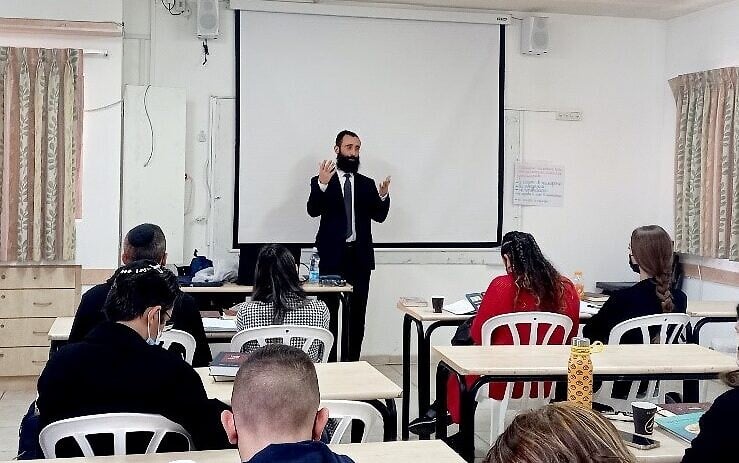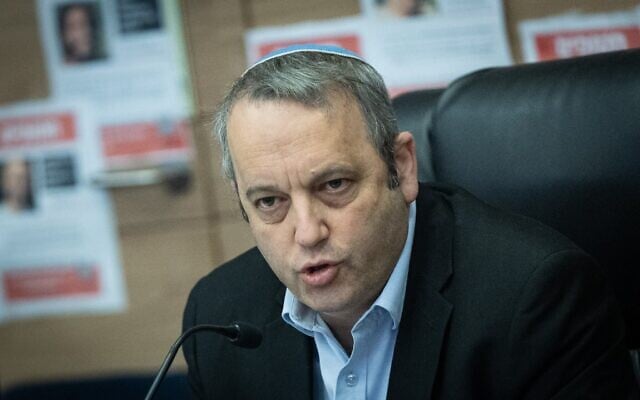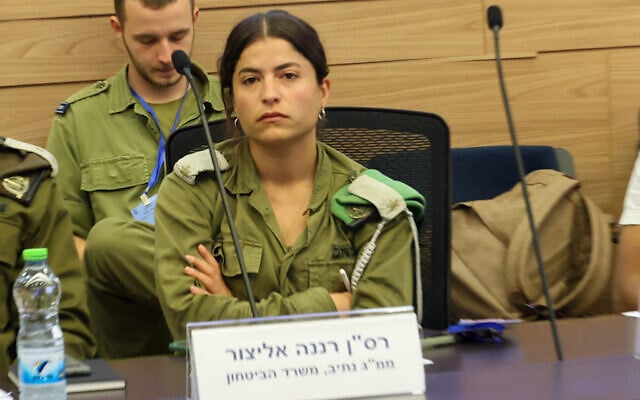



When Miriam landed in Israel from Austria with her children on Rosh Hashanah Eve in October 2024, she thought she had come home.
A divorced Orthodox convert, Miriam (who did not give her last name) was told by the Jewish Agency that she could complete her Aliyah process that had been dragging on for a year once in Israel, where she was eager to move after her children were physically attacked in their school in the town of Klagenfurt for their Jewish identity.
Yet, when Miriam went to the Interior Ministry for an appointment to receive her Israeli documents, which had been set up by the Jewish Agency in December, she found out that she did not exist in the system. She was only given temporary residency and was asked to prove again that she lived an observant life, “as if the years of commitment, sacrifice and halachic observance weren’t enough,” she noted.
“Since then, I’ve been stuck in a nightmare,” Miriam said. “I had to start over again and again. I have no family here and no safety net. I have no health insurance, no support and now no money left.”
Miriam was one of the individuals invited to share their stories during a meeting of the Knesset Aliyah Committee devoted to the topic of conversions on Tuesday, ahead of the festival of Shavuot, which this year is set to begin on June 1 at sundown.
The meeting marked the first time the committee discussed the issue of conversion in two years, its chairman MK Gilad Kariv from Labor noted (Kariv was appointed as head of the committee in February).
“In a few days, we will celebrate the holiday of Shavuot, the time of the giving of our Torah, which is all based on love for the convert,” Kariv said, opening the meeting. “I cannot say that we as a Jewish state are strict with observing the commandments of loving and not afflicting converts.”

In Israel, the Jewish status of an individual has implications that go far beyond his or her religious life.
For example, only those who are considered Jewish under the Chief Rabbinate’s criteria (children of Jewish mothers whose Jewishness is proven, or those converted by recognized rabbinical courts) can legally marry in the country, since Israel has no civil marriage and does not allow any other Jewish religious authority to perform weddings.
Regarding new immigrants, individuals who have at least one Jewish parent or grandparent are eligible to move to Israel under the Law of Return. However, if the parent or grandparent is on the father’s side, the Chief Rabbinate does not consider the person Jewish unless they convert. Over half a million Israelis are currently in this situation.
Converts who wish to immigrate to Israel must have their conversion recognized by the state, which can be a very challenging process.
A 50% success rate?
According to data from the Conversion Authority at the Prime Minister’s Office (the body in charge of facilitating and ratifying all conversions performed in Israel outside the army), only about half of those who start the process to convert actually manage to complete the journey.
Between 2022 and 2024, some 13,600 opened a file to convert, but only 6,400 succeeded. The year 2024 saw a slight increase in the number of people who officially converted, with 2,598, compared to 1,754 in 2023 and 2,087 in 2022.
At the same time, over the past month, even those who have completed their conversion process have faced yet another challenge. Since the Conversion Authority is currently formally without a director, nobody can sign the official conversion certificates.
“There are 263 people who have been waiting for a month,” said Rabbi Raphael Dayan, a Chief Rabbinate representative at the Prime Minister’s Office.

The predicament is a result of a political impasse between Prime Minister Benjamin Netanyahu and his coalition partners.
Rabbi Yehuda Amichai, a national religious rabbi and a close associate of Religious Zionism party head Bezalel Smotrich, was appointed as the acting head of the authority in January 2023. In April 2024, the authority started a process to select a permanent head. Eventually, the appointed committee screened some 12 candidates and selected ultra-Orthodox Rabbi Avishay Teherani. Netanyahu, however, decided not to approve the appointment, with his chief of staff Tzachi Braverman citing Teherani’s lack of managerial experience.
The matter was brought before the High Court of Justice by the religious rights group ITIM. While the case is still being discussed, the court has blocked Netanyahu’s attempt to extend Amichai’s term.
“I hope the issue will be solved in the near future,” Dayan told the Knesset committee.
According to data presented by IDF representatives during the meeting, those converting through the army also face challenges.
In 2024, 2,367 soldiers started the special Nativ track to convert, but only 923 completed the process. In 2023, 1,760 soldiers started it but only 910 reached completion.
Nativ offers courses on Jewish and Israeli history and identity to young Israelis who serve in the army or in national service. The conversion program lasts about 11 weeks, usually divided into two stages, Lt. Col. Kobi Gridish, head of the military conversion court, told the committee.
Asked about the high dropout rate, Gridish said the program is doing everything possible to help soldiers who wish to convert.
“We are also working to implement a special program to accompany converts, which is still under study,” he said.
In the aftermath of October 7, 2023, the military was forced to suspend the conversion courses, but eventually resumed them.

“Today, despite the complex period, all courses are taking place in their regular format,” said Maj. Renana Elitzur of the Defense Ministry.
Speaking to the committee, representatives of ITIM stressed that the number of converts remains minuscule compared to the potential.
“In recent years, only between 1,200 and 1,400 of approximately 560,000 citizens in Israel who are not recognized as Jewish completed the process,” said Ohad Weigler, ITIM’s Public Policy Center Manager (the rest of the annual converts are individuals who are seeking citizenship or have a different status).
“This is the target audience. The numbers are very low.”
After listening to several converts from abroad who, like Miriam, have not succeeded in seeing their conversion recognized by the state, and therefore receiving citizenship, Kariv apologized on behalf of Israel and promised to follow up both on individual cases and general procedures.
Kariv stated that the committee will reconvene to discuss the topic of conversion soon.
“This issue is extremely important,” he said. “We will continue to engage in follow-up discussions on this issue and request more comprehensive data.”
